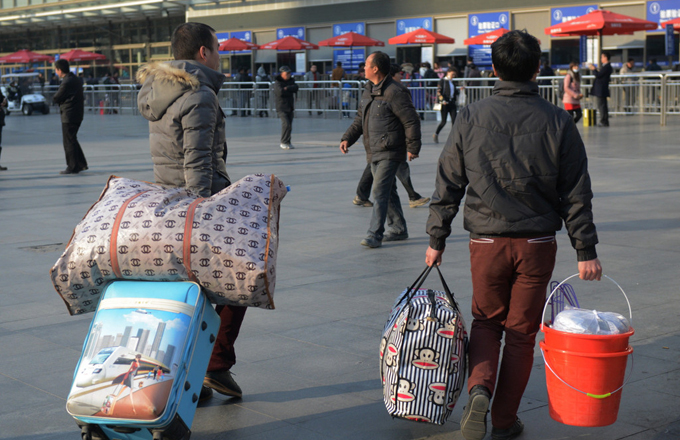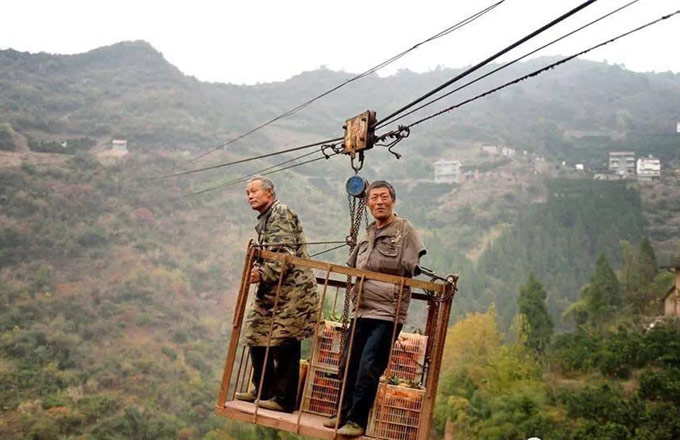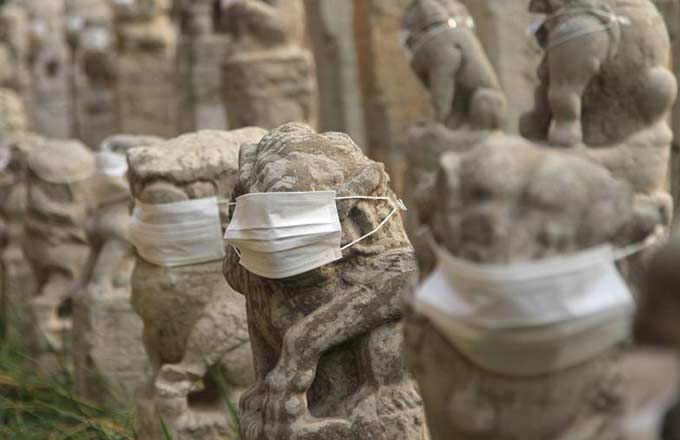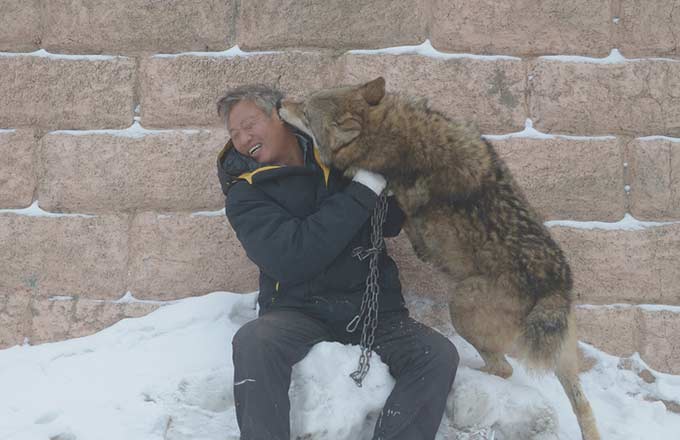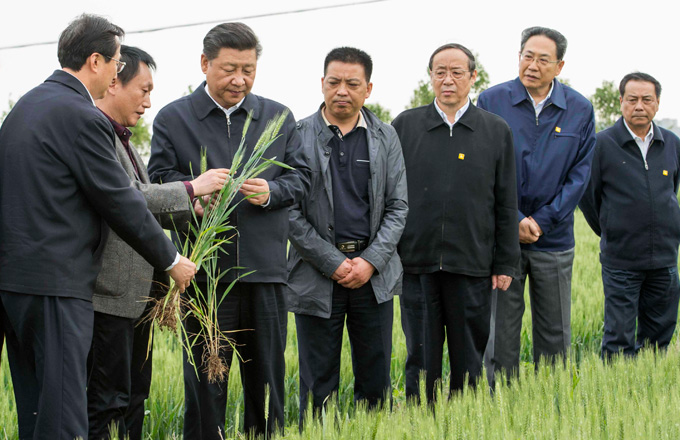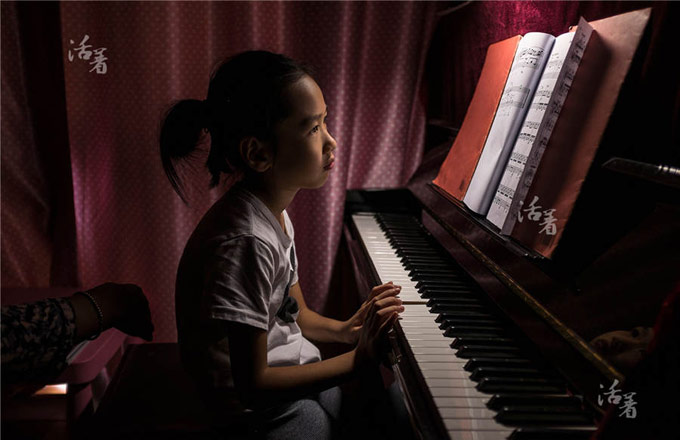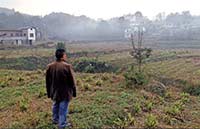Soulful string
|
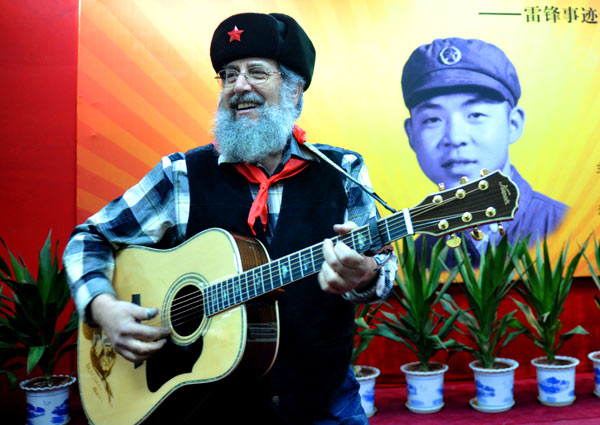
|
|
Mark Levine is a longtime proponent of the power of music in social movements. In 2012 he performed at a celebration of Lei Feng Day in Beijing, celebrated on March 5 every year in China. PHOTOS PROVIDED TO CHINA DAILY |
Most of Mark Levine's students in Huai'an, a city of 600,000 in northern Jiangsu province, and later his students at Minzu University of China in Beijing, had one clear idea about Americans: They were all rich.
Levine, a sixtyish folksinger from Los Angeles with a bushy beard, likes to sport flannel shirts and a straw hat, whether he's teaching English or strolling on the Great Wall with his guitar and his muse. Not exactly the picture of Daddy Warbucks or Donald Trump.
Levine has been in China since 2005, each year giving more students an increasingly realistic picture of America and Americans. He's as eager to make his sense of China equally clear-eyed, and he's put down what he's learned in more than 50 songs of and about China.
Some are hongge (literally red songs) from the days of "cultural revolution" (1966-76) - despite the fact that he speaks virtually no Chinese even today.
"I came to understand that a lot of young people don't pay any attention to that kind of music," Levine told a Beijing magazine in 2011. "I thought that was kind of a problem because the lessons the music teaches and the principles they stand for are very important."
Some of what he plays are US-style folk songs with a Chinese twist. Some of the words to the latter are in Chinese but very often, in English, channeling the spirit of Woody Guthrie and other traditional music icons in a Chinese context.
That context, he says, is nothing new to him. The struggles of migrant workers, the grind of earning a living, the pain of loss, the power of love and hope - all, he says, are themes that resonate in every culture.
"I've been singing folk music all my life, with musicians from other countries such as England, Spain and Italy. The issues, the life challenges, the pain - it's the same everywhere. So it's perfectly natural for me to be doing it in China - it's not a gimmick for me," Levine says.
He has taken his guitar to ceremonies honoring Lei Feng - a selfless PLA hero that the country has honored during the 1960s and every March 5 nowadays. He has played at one rally of 50,000 people - "that's more people than saw the Beatles at Shea Stadium!" - and many social and education events. Levine has performed in bars and clubs, and also on TV shows and during festivals. Red songs he has learned include Without the Party There is No New China, The East Is Red, Why Are the Flowers So Red and Liuyang River.
"I don't speak Chinese, but I sing Chinese songs very well," he says. "I take Chinese songs and try to make them my own," he adds, "so they are both universal and individual. I don't try to pretend I'm Chinese."
|
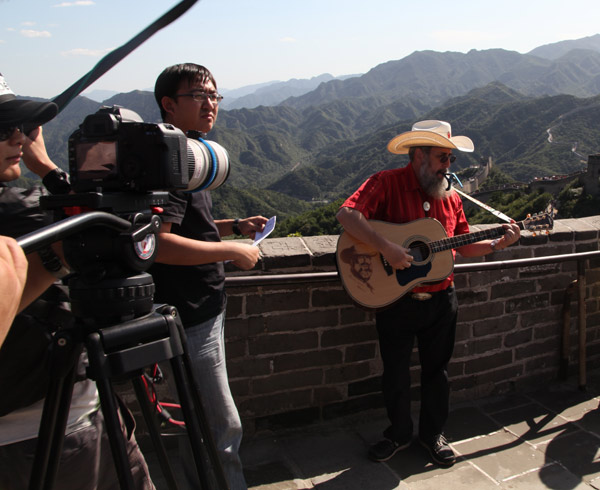 |
|
Levine sports his trademark red-starred straw hat on the Great Wall during the filming of a recent documentary. |
Levine has also written songs of his own, including Mood from the Chinese Countryside, My Lovely Asian Eyes, It's the Kites that Own the Sky and To Make its People Strong.
He's become interested in early 20th-century foreigners who played a role in the shaping of modern China - from American writer Edgar Snow to battlefield doctors Norman Bethune (Canadian) and D.K. Kotnis (Indian) to less-known partisans from abroad like George Hatem, Joseph Needham and Israel Epstein.
Levine recently participated in a TV series about those individuals titled Red Dream Catchers that was broadcast in January. He also organized a lecture series, They Helped Build New China, for university students and interested groups, which featured the surviving descendants of those historical figures. "We need to remember their stories and their contributions," Levine says.
A sociologist as well as a teacher, he loves being a judge at English speaking and writing contests.
"I really like being the one who asks the questions," he says with a grin. "If the theme is about the importance of modernizing, I like to ask if China can afford to let its traditions go by the wayside. And if the theme is about honoring traditions, I ask if China can let tradition stand in the way of progress.
"I came to China to teach in Huai'an, the hometown of Zhou Enlai, who is rather a hero of mine," says Levine. "I could have stayed there teaching happily forever, but they have a two-year limit on foreigners teaching there. I didn't know that - nobody told me until it was time for me to go," he chuckles. Soon after, he was in Beijing interviewing for teaching jobs at Tsinghua and Minzu universities on the same day.
"The energy at both places was tremendous," he says, "and I went back to my hotel that night really torn. But then I thought about how Minzu was the national university for the country's ethnic groups - including children who had struggled with difficult circumstances to get there.
"I had a moment of clarity then: My mission in life had never been with students who were the best and the brightest," he says. "The students at Tsinghua, one of China's premier universities, were going to have a great future whether I went there or not," he decided. But going to Minzu was more in line with the work he'd always done, as a labor organizer in the US for struggling seasonal workers and a volunteer in poor communities.
"I haven't regretted it for one second," he says, grinning under the brim of a straw hat that sports a red star pin. "I will stay here as long as I'm welcome, and I spend my life making myself welcome."
Contact the writer at michaelpeters@chinadaily.com.cn.



